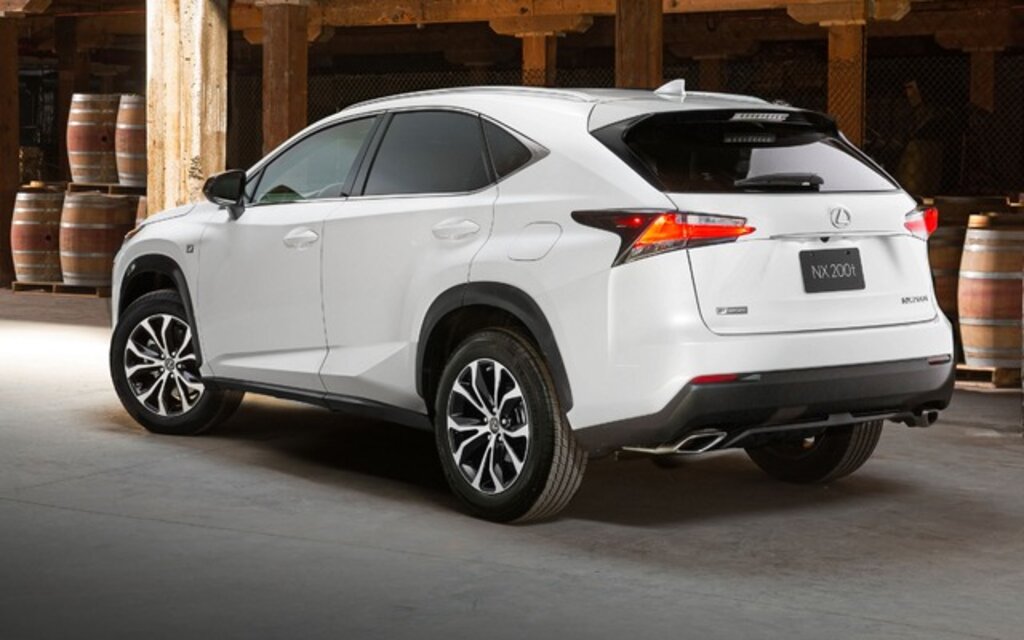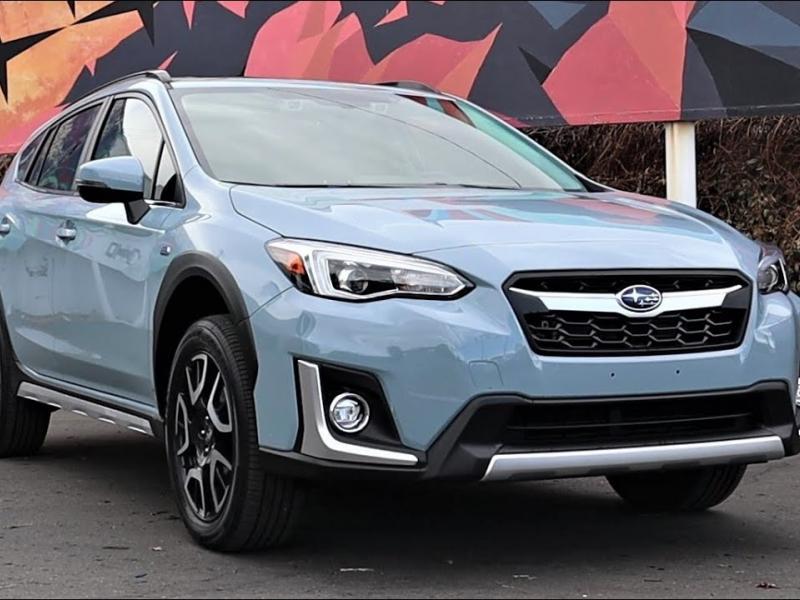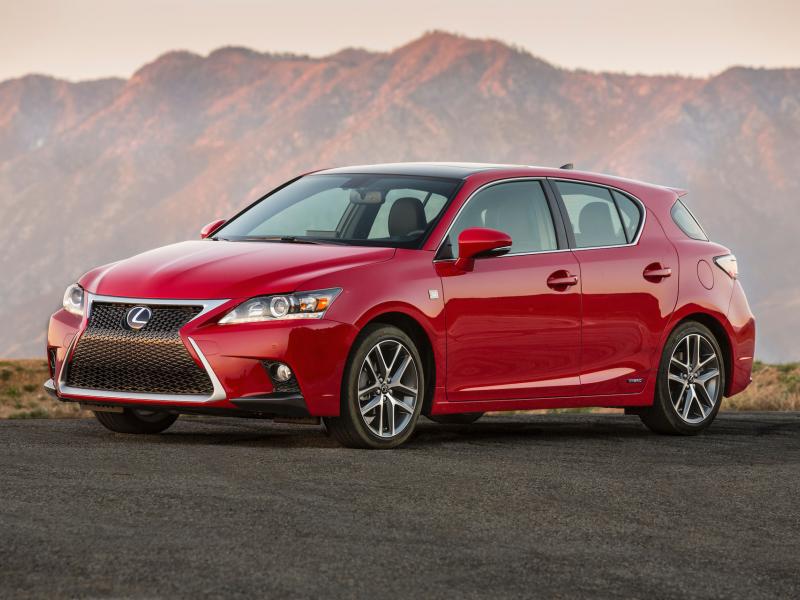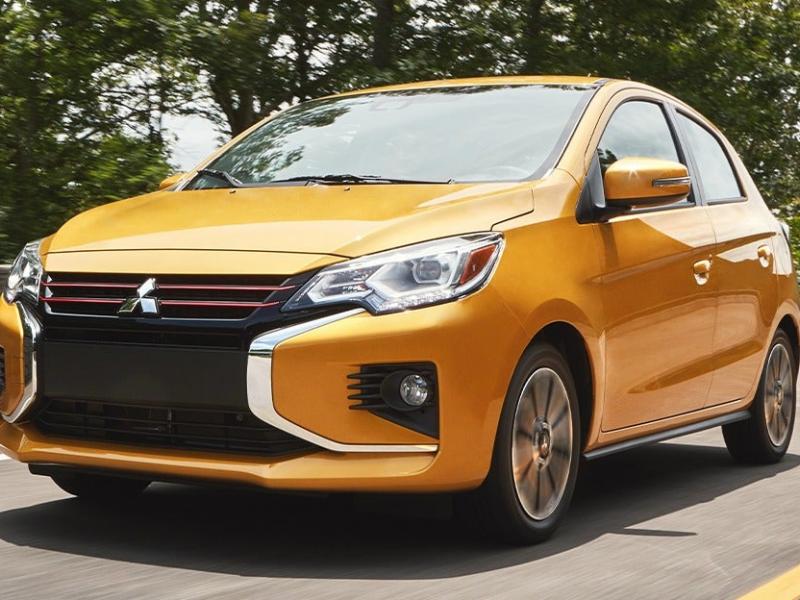In DC, Audi fights for incentives, diesel acceptance and HOV lane access
Last week, Audi of America invited journalists from across the country to attend a diesel-only driving event in the nation’s capital.
With Capitol Hill in its backyard, it was only natural for the German automaker (whose U.S. headquarters are located in Herndon, Va.) to discuss advocacy and the importance of the federal government not picking winners and losers when it comes to advanced technologies – and especially not winners and losers in the HOV lane.
Anna Schneider (center), VP of Industry and Government Relations at Audi/Volkswagen Group of America, talks to a room full of media about advocating for diesel technology on Capitol Hill. | Photo credit: Melanie Batenchuk
Anna Schneider, Vice President of Industry and Government Relations for Audi/Volkswagen Group of America, took the stage on Tuesday night to talk to a group of journalists about how the company advocates on Capitol Hill for diesel incentives.
Her goal? To get lawmakers to understand the new state of diesel fuel and level the playing field for clean diesel in America.
Schneider explained to the group that the Obama administration has been less than favorable to clean diesel, refraining from offering incentives on advanced diesel technology vehicles.
According to an Audi representative knowledgeable about its product line, the Q7 and A3 sales mix currently comprises of 33 percent and 55 percent TDI models, respectively. A total of 20 percent of Volkswagen/Audi Group of America’s sales are coming from its diesel offerings; yet, there are neither federal tax breaks for consumers nor benefits of accessing HOV lanes.
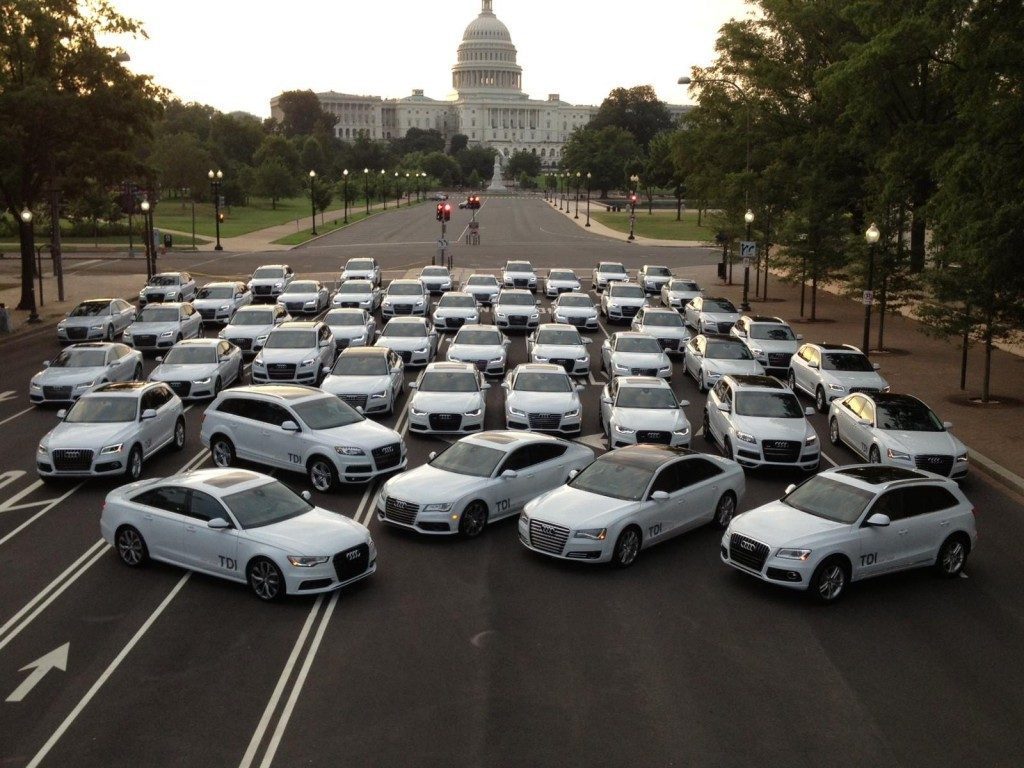
Audi parks 40 TDI model vehicles in front of the Capitol building in Washington, D.C. | Photo courtesy of Mark Dahncke with Audi of America
In fact, Schneider emphasized, fifteen states penalize diesel vehicles – with some taxing them at six percent higher than their gasoline counterparts. Audi believes that diesel enhances national security, providing the opportunity to reduce America’s reliance on 1.4 million barrels of diesel fuel a day from Saudi Arabia.
“Putting these vehicles on the road should be incentivized, not penalized.”
– Anna Schneider, VP of Industry and Government Relations, Audi/Volkswagen Group of America.
But what about broad-scale consumer acceptance? The stigma of diesel has not yet been washed away in the U.S. When asked if Audi believes that obtaining federal and state level incentives will help move the needle on that perception, Schneider admitted that these challenges still exist, affirming that the automaker believes public federal support could help bring the general public to a better understanding of the benefits of clean diesel technology.
What is Audi’s ask?
At a minimum, Audi would like to see clean diesels – like its Q5, A7 and A6 models – gain access to HOV lanes because they perform equal or better to their hybrid counterparts on highway fuel economy.
Incentives and access to high-occupancy volume lanes would be ideal; however, Schneider zeroed in on the way that the Environmental Protection Agency (EPA) weighs fuel economy. She believes it is far too favorable for hybrids.
EPA estimates that drivers spend 55 percent of their time driving in city conditions and 45 percent on the open road. Schneider argues that it is the other way around. A 55/45 split where highway driving gets the larger percentage would reflect what is “much more in line with real-world driving habits” according to Audi’s head lobbyist.
“Consumers are achieving much higher fuel economy than what’s listed on the Monroney label,” concluded Schneider.
Editor’s Note: In full disclosure, Schneider is a long-time acquaintance of mine through the D.C. automotive community. Personally, I found the panel format that Audi put together both interesting and important. Focusing on dealing with the federal government is a refreshing discussion point for those attending a media event as few journalists, particularly those living beyond the Capital Beltway, follow the public policy side of the industry on a full-time basis.

